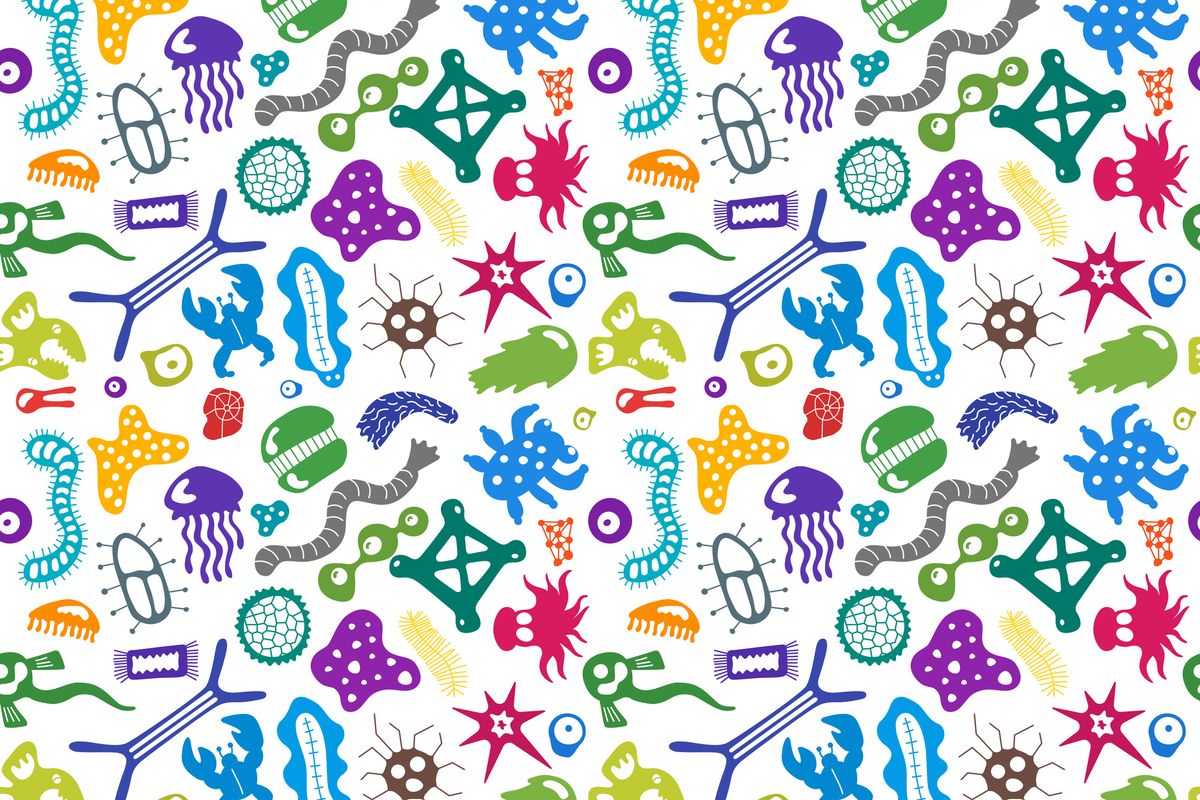Growing up, we often hear that our individual DNA is unique, but how often do we hear about the uniqueness of our microbiota?
The microbiome is the collection of 100 trillion microbial organisms that exist in and on our bodies. These microbes play a vital role in our health, protecting against disease, boosting our immune system and even helping us digest our food. Our microbiome also helps synthesize vitamins, including B, B12, K, thiamine and riboflavin.
Dysfunction in the microbiome is associated with autoimmune diseases, including diabetes, rheumatoid arthritis, muscular dystrophy, multiple sclerosis and fibromyalgia.
"Healthy microbiota play a fundamental role in immune function and protect us from harmful pathogens. The microbiota are key players in metabolism and nutrient absorption," explained Dr. Calley Levine, attending gastroenterologist at Northwell Health. "It really is the balance between these diverse organisms that is the most important to gut microbiota, as opposed to one individual species or one individual phyla."
Nature versus nurture
The composition of your microbiome is largely determined by the DNA you were born with and the microorganisms you were exposed to in the birth canal and via breast milk. However, your environment, medication, diet and lifestyle choices can all affect — and potentially disrupt — the balance of a healthy microbiome.
Eat more dirt
Humans are not the only organisms with a microbiome. The soil found in dirt contains a highly diverse array of microbial species. The human microbiome contains only 10% of the diversity that the soil microbiome contains. Because dirt contains so many different microbiota, exposure to the natural environment (including dirt) can help us to develop a more diverse and, thus, healthier microbiome.
Douching harms the vaginal microbiome
Beneficial bacteria in the vagina, such as lactobacilli, produce lactic acid, which keeps the pH balance in check and protects against pathogens. A healthy, balanced microbiome can protect against conditions such as urinary tract and yeast infections, sexually transmitted diseases and bacterial vaginosis.
Certain activities, such as douching or even using soap, can harm the delicate vaginal microbiota and overall vaginal well-being.
"Many women are surprised to learn that having a slightly acidic pH in their vagina controls whether yeast or bacteria overgrow," explained Barb Dehn, a nurse practitioner and member of the HealthyWomen Women's Health Advisory Council. "That's because the vagina is a very delicate and complex ecosystem, so if the pH becomes less acidic, then it's a setup for opportunistic yeast or bacteria to overgrow, causing symptoms."
Healthy diets improve the gut microbiome
What we eat can largely affect the balance and overall health of our microbiome. Diets high in fat and sugar have been associated with unfavorable changes to the gut microbiota. High fiber diets, with plenty of fruits and vegetables, are recommended for people looking to improve their gut microbiome. (Your diet cannot directly impact the vaginal microbiota.)
"The lactobacilli found in foods such as yogurt is not the same lactobacilli found in the vagina, so eating foods rich in lactobacilli will not replenish the lactobacilli in your vagina," Dehn said.
Probiotics and prebiotics can help balance the microbiome
Probiotics are healthy living microorganisms that can be consumed through food, such as yogurt, sauerkraut and kimchi, as well as supplements.
The research on whether these supplements can boost the microbiome is inconclusive, and Dr. Levine believes that more research is needed to clearly showcase the benefits that probiotics have for users.
It's important to note that supplements are not regulated by the FDA; however, there are situations where your medical provider may recommend using a probiotic supplement.
Certain indigestible fibers are considered to be prebiotics, which are used as a food source for some of the healthy bacteria in our microbiomes. If you want to increase prebiotics in your diet, you can turn to prebiotic supplements or prebiotic-rich foods, such as vegetables or whole grains.
Medication can disrupt the microbiome
Antibiotic medications can quite literally be lifesavers when it comes to fighting bacterial infections and killing off bacterial microorganisms that cause disease. However, in the process, antibiotics may also kill off the healthy bacteria we need for our microbiome."Antibiotics can alter the composition and create an imbalance or what we call dysbiosis in the gut microbiota. It can lead to an increase in some species or a decrease in other species," states Levine.Eating probiotic-rich foods, such as yogurt, while using antibiotics could potentially help lessen some of the unwanted effects of antibiotic usage, such as antibiotic-associated diarrhea.Aging alters the microbiome
Like other parts of our bodies, our microbiomes can change as we age. This means that, for many women, menopause can be a time of a change for the vaginal microbiome.
Lactobacilli is one of the most important species of bacteria in the vagina. Because they rely on estrogen for energy, they tend to decrease when a woman goes through menopause.
"[This] leads women to have much higher pHs and much more alkaline environments, and they are much more prone to lots of different symptoms, from itching and burning to urinary tract infections, as pathogenic bacteria migrate from the vagina to the urethral opening," Dehn said.
Diversity is key
Each of us is born with our own intrinsic galaxy of microorganisms that help us function. Maintaining a healthy balance of all the diverse microbes in our body is essential. Eating a healthy diet full of nutrients, getting exposure to the natural world and monitoring medication usage are all important aspects of maintaining a balanced microbiome.
Resources:
National Institutes of Health, Human Microbiome Project
- 10 Signs You Have a Leaky Gut—and How to Heal It - HealthyWomen ›
- Love Your Vagina with Dr. Jessica Shepherd - HealthyWomen ›
- A healthy microbiome builds a strong immune system that could ... ›
- When It Comes to Your Microbiome, More Germs Are Better - HealthyWomen ›
- What You Need to Know About Probiotics and Prebiotics - HealthyWomen ›
- Signs You're Not Getting Enough Fiber - HealthyWomen ›







